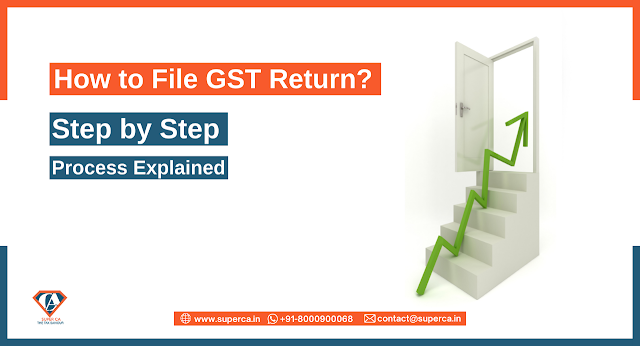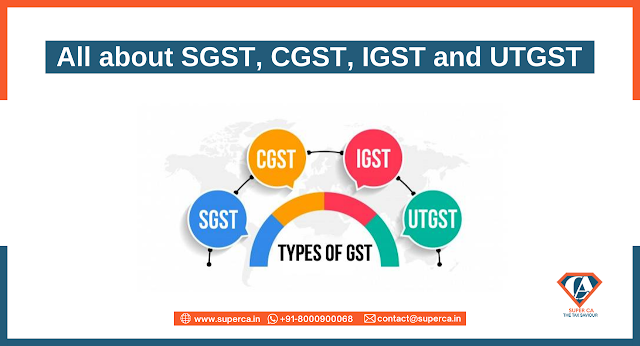Understand GST Registration Before You Regret
Online GST Registration is the process of obtaining a 15-digit unique identification number from the tax authorities. Currently, it is mandatory for a business/supplier that has a turnover of above Rs.40 lakhs (Rs 10 lakhs for special category states present in hill states and North-Eastern states) to get registered under GST. Online GST registration is a simple process and it doesn’t require manual intervention or physical paper submission. Once the application is approved by the GST officer, the individual gets a registration certificate and a unique alphanumeric GSTIN.
Usual Process of applying for GST Registration.
The following are the two ways to register for GST:
via GST Online Portal or
via GST Seva Kendra set up by the Government of India
You will receive your online GST registration certificate usually within 10 working days after all submissions for the registration. However, the processing officer of the GST department requests few applicants to provide additional documents for further clarifications. And in some cases, the application for GST registration could also be denied or rejected.
After submission of your application along with the list of documents required, you will be provided with an acknowledgement. The ARN number (Acknowledgement Reference Number) as mentioned in the application acknowledgement is used to track the status of your application.
It takes about 7 working days for the provisional GSTIN to be provided and an additional 2 days for providing the final GSTIN with a soft copy of the online GST registration certificate.
Benefits of getting Online GST registration
➢ Businesses with GST registration have Legal recognition of supplier of goods/services which in turn helps in attracting more customers and growing business
➢ You will become more competitive than small businesses as purchasing from them will ensure input credit.
➢ A person who is having online GST registration can take ITC on their own purchases and input services
➢ A person with GST registration can have Inter-state supplies without any restrictions.
➢ Ensures proper accounting and payment of GST to tax authorities This will result in a good compliance rating of your firm and help to boost the business.
➢It Eliminates the cascading effect of tax which is basically the "tax on tax" system.
Different Types of GST registrations
Various online GST Registration types are present under the GST regime. Registration Type completely depends on the nature of the business and your identity. Hence, it is advised to read a little bit about the different forms and acquire a better idea regarding the difference and benefits before selecting the suitable one. After that, you can initiate the online GST registration process.
Normal Taxpayer
It is mandatory for a business/supplier to get registered under GST as a normal taxpayer once the threshold limit of Rs.40 lakhs (Rs 10 lakhs for special category states present in hill states and North-Eastern states) is crossed. Most of the businesses in India fall under this category
Casual Taxable Person :
Individuals wanting to set up an occasional/seasonal shop i.e they do not have a fixed place of business can opt for this registration.
Non-Resident Taxable Individual
All non-resident taxable persons i.e people who reside outside India, but supply goods to individuals who stay in India, can opt for this.
Composition Taxpayer
The composition scheme has lesser compliance compared to other types but the taxpayers under it will not be able to claim ITC under this category. This scheme is currently applicable to businesses with an annual aggregate turnover of Rs. 1.5 crores or less (lower limit is applicable in case of special category states). Small taxpayers may find this trade-off worth it and pay a set rate of turnover instead.
Documents required
The following documents are required while going for online GST registration.
➢
PAN of the Applicant
➢
Aadhaar card
➢
Proof of business registration or Incorporation certificate
➢
Identity and Address proof of Promoters/Director with Photographs
➢
Address proof of the place of business
➢
Bank Account statement/Canceled cheque
➢
Digital Signature
➢ Letter of Authorization/Board Resolution for Authorized Signatory
Final Words
GST benefits are far-reaching and are both business & consumer-friendly. Enforcement of the GST Act has also made tax administration transparent and corruption-free.
All entities who meet the eligibility criteria are mandatorily required to go for online GST Registration. Defaulters who neglect to follow the rules and do not pay the tax or make default in payments instead of full refund are liable to pay the penalty. If due to genuine errors, any business person who does not register under GST will be levied to pay a penalty of a minimum amount of Rs. 10,000 or 10% of the tax amount whichever is higher. But, If the offender is deliberately evading from making up the tax, the penalty will be implemented on the person and it is about 100% of the tax amount.





OPC registration in Delhi is a streamlined process designed for solo entrepreneurs seeking to establish a legally recognized business entity. The process involves obtaining a Digital Signature Certificate (DSC), Director Identification Number (DIN), and filing the necessary forms with the Registrar of Companies (RoC). Once registered, an OPC enjoys the benefits of limited liability, separate legal entity status, and enhanced credibility.
ReplyDelete